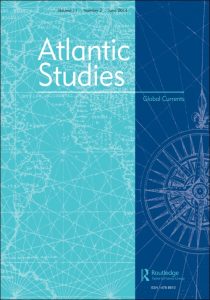Globe. Revue internationale d’études québécoises sollicite des propositions d’articles en vue de la préparation d’un numéro thématique consacré aux jeux vidéo.
Avec plus de 231 entreprises recensées en 2016 (Rapport TECHNOCompétences), comprenant de grands studios comme Ubisoft, Warner, Eidos et Gameloft ainsi que de plus petites entreprises regroupées au sein de la Guilde des développeurs de jeux vidéo indépendants du Québec (« la plus grosse coopérative de jeux vidéo indépendants au monde »), nul ne peut contester l’importance de l’industrie québécoise du jeu vidéo. Qui plus est, et comme le note la Guilde, «Montréal et Québec sont reconnus à l’échelle internationale comme des capitales du développement de jeux vidéo». Pour répondre aux besoins toujours croissants de cette industrie, la programmation, l’animation 3D, le design numérique et la conception de jeux vidéo sont maintenant enseignés tant dans le cadre de programmes universitaires que dans les formations offertes au niveau collégial. Les centres et groupes de recherche étudiant le jeu vidéo sont reconnus (on pense au Technoculture, Art and Games (TAG) de l’Université Concordia, au groupe Homo Ludens de l’Université du Québec à Montréal ainsi qu’au laboratoire LUDOV de l’Université de Montréal). Enfin, en entrant au Musée de la Civilisation à Québec par l’entremise de l’exposition «Une histoire de jeux vidéo», ce que l’on qualifie depuis les années 1990 de dixième art a bel et bien marqué sa place dans le paysage médiatique et la culture québécoise.
Ce numéro thématique s’inscrit dans la foulée des approches plus locales de l’histoire. Car s’il existe des histoires globales du jeu vidéo telles que Phoenix: The Fall & Rise of Videogames (Herman, 1994), The Ultimate History of Video Games (Kent 2001), The Video Game Explosion: A History from PONG to PlayStation and Beyond (Wolf, 2007) et Replay. The History of Video Games (Donova, 2010), celles-ci se concentrent sur « les gros canons », à savoir les productions américaines, japonaises et européennes. À l’exception du chapitre sur le Canada de Dominic Arsenault et Louis- Martin Guay dans l’ouvrage Video Games Around the World (Wolf, 2015) et de quelques articles publiés dans des revues, entre autres sur les jeux indépendants (comme le Vol 7, No 11 publié en 2013 par la revue Loading… de l’Association canadienne d’études vidéoludiques), on a peu écrit sur la création vidéoludique québécoise pourtant fort riche.
En s’intéressant au jeu vidéo, Globe désire ouvrir les horizons sur ce qui se crée au Québec. D’une part, il ne s’agit pas seulement d’examiner la production depuis l’arrivée de la compagnie française Ubisoft à la fin des années 1990 et de la fulgurante croissance qui a suivi, mais aussi de réfléchir au développement qui a mené à la création de la Guilde. En ce sens, s’il est difficile de ne pas tenir compte des productions AAA de grande envergure, notamment au moment de la sortie d’Assassin’s Creed: Origins, il ne faut en revanche pas laisser pour compte les jeux vidéo indépendants autant, sinon plus, créatifs et innovants. D’autre part, il est tout aussi nécessaire de se tourner vers les autres communautés. En effet, loin des clichés antisociaux, le jeu vidéo est au cœur de la formation de diverses communautés. Outre celle des développeurs, il est nécessaire de souligner l’activité et l’impact des communautés de joueurs/euses sur la réception et de celle des collectionneurs/euses sur la conservation. Tant du côté des universitaires, de la presse officielle que de celui des fans très actif sur le Web, le discours des divers commentateurs/trices mène aussi à une certaine pensée du jeu vidéo québécois.
The full Call for Proposals can be found here.
Date limite: 1er Septembre 2018.

